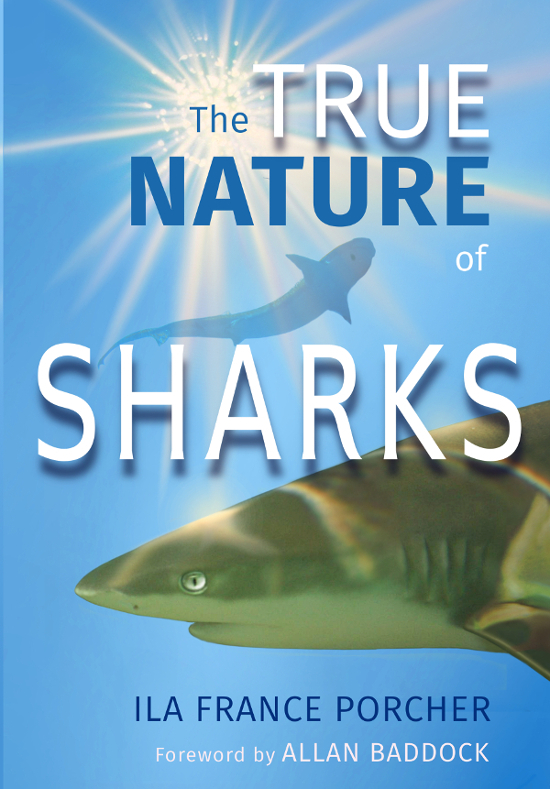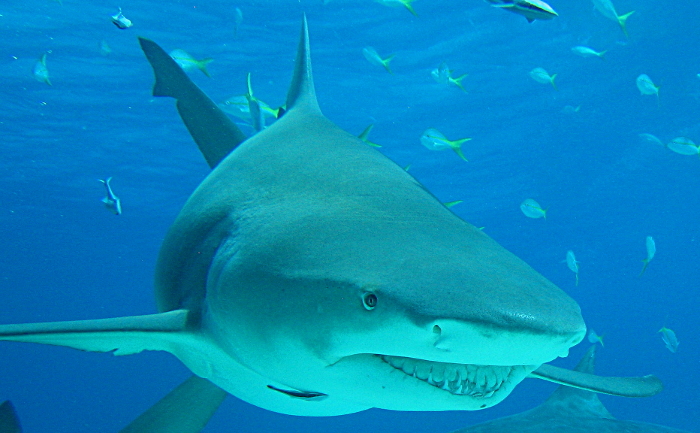The True Nature of Sharks
As a life long observer of wildlife, I recognized as soon as I began meeting wild sharks that their behaviour was very different from that of the mammals and birds we are more familiar with. So for fifteen years I spent most of my spare time watching them underwater to learn as much as I could about what they are like as animals and individuals.
For seven of those years, I
kept track of hundreds of individual reef sharks using a lagoon, and
could recognize more than three hundred on sight. Studying them as individuals opened a new
dimension on their lives, revealing their companionships, their emotional responses, and
the way they socialized. These studies were supplemented by observing other species--tiger sharks, lemon sharks, and bull sharks--for shorter periods of time.
Many of the actions that sharks will take indicate that they are thinking, rather
than acting on instinct alone, and it became clear
that they have been badly underestimated by science. No one in
the marine science community has done equivalent studies
of sharks underwater, or any similar study involving long term underwater observation of wild sharks.
Yet, though almost nothing was known about what sharks are really like, they have been presented for the past several decades as monsters by fishermen and in the media. So my book also
examines the current state of shark science, which is inseparable from fisheries, and how and why it has
failed this whole line of animals. At this time many species are plummeting into extinction.
The knowledge that sharks are intelligently aware, feeling, and thinking about the events in their lives means that we cannot continue to regard them as being automatons, cold and senseless. As Professor Emeritus Alan Kamil wrote about pinion jays,
"Awareness of the
cognitive abilities of these animals forever changes our perception of
them and their place in nature, and ours."




Comments